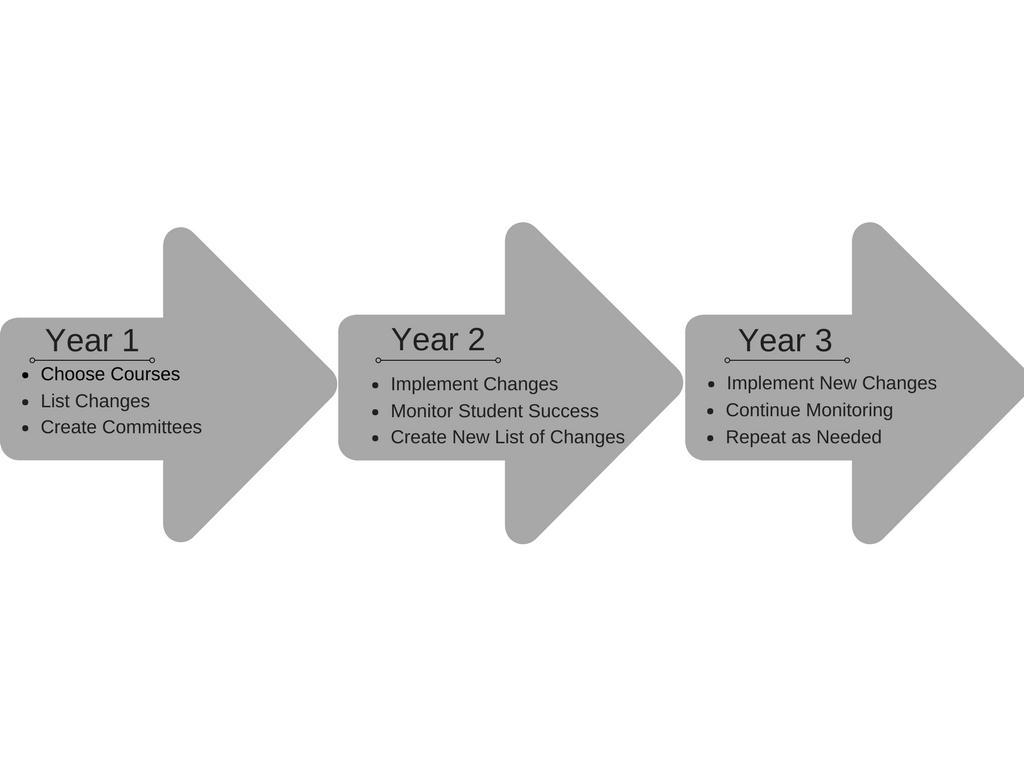Capital is in the beginning processes of reforming three courses that have proven important in facilitating success later on in students’ education.
Administration has chosen to evaluate and eventually enhance the rigor in BUS-101, UC-220 and CHEM-101, with these class choices being finalized last week. The courses were chosen based on the success rate of students, surveys of students and faculty recommendation. Dr. Fournier calls these courses “gateway courses,” or classes that occur within the first or second year of undergraduate education, affect a lot of students due to high enrollment and have the potential to stop students from moving forward in their major.
“If a student doesn’t do well in some of these courses, they’ll have a difficult time ever graduating from this institution,” Dr. Fournier said. “So, it’s worthwhile starting with those courses.”
By evaluating these courses, administration hopes to enhance a student’s first-year experience through acclimating them to the rigor that will occur in later courses, as well as giving students the foundation they need to find success later in their undergraduate experience.
Each of the courses has a specific committee made up of faculty members and some staff who will focus on researching and making changes. The committees will be working with the Gardner Institute, an organization committed to “excellence in undergraduate education,” as well as looking at student surveys to evaluate each course throughout the rest of this academic year. By May of this year, Dr. Fournier said that the committees hope to have a set of goals in place for each course.
Although some students may be worried that their voices won’t be heard, Dr. Fournier says student surveys are highly important.
“The changes are driven by what students are telling us,” he said.
Although he isn’t sure yet quite what changes will be made at Capital specifically, Dr. Fournier says that other schools have made changes to course prerequisites, added “high-impact practices” into the classroom and added tutoring tailored specifically for the course.
Starting next fall, the administration is hopeful that they will start implementing some of the ideas found in their research from this year. Throughout the year, the classes will be monitored through student surveys, as well as watching students’ success in the courses.
After the first year of changes being implemented, the courses will be reevaluated and changed to fit the needs that the students expressed throughout the previous year. This process will continue for as long as necessary.
“After three years, the course should be, and the experience of the student should be, radically different,” Dr. Fournier said. “Universities who have gone through this have shown incredible growth in terms of student success in those courses.”
Although the committees are focused on three main courses at the moment, the goal is that the changes they make will “trickle out to other courses,” and “kick off curricular revision at the university.”
The course evaluation is part of a larger initiative to enhance student success across campus, and is one of the final steps in the high priority part of the plan.


